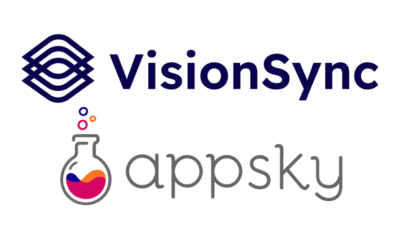With all the talk we’ve had about IPOs, that inevitably leads to the question of how these companies can deem themselves valuable, particularly down to an exact numerical amount. That being said, it’s hard not to wonder how IPO valuations aren’t just a shot in the dark.
Well…actually, I think that’s exactly what they are.

There are technical methods to value a startup, but they are all based on qualitative factors, or sentiments, that one can only attempt to accurately translate into a numerical value with minimal discrepancy. In reality, this is a very hard thing to do, even for the most experienced angel investors–even then it’s ultimately a gut feeling to them. So what is a startup valuation: essentially, it’s an enigma.
Of the biggest failed IPOs, one of which is of particular discussion not only because it was the biggest loser of stock market debuts since 1975, but especially because it’s interesting that anyone was surprised about just how poor the turnout was, or rather, how egregiously overspeculated it was in the first place. This company had not even produced profit any single year leading up to their debut, and even admitted directly in their IPO filing that they may never actualize a profit in the future. Yet, a year before the planned IPO, Uber was determined to go public at a $120 billion valuation by banks Morgan Stanley and Goldman Sachs.
For some perspective, with Uber’s private funding amounting to 76 billion in the year 2018, for them to reach the anticipated $120 billion mark after IPO, that would mean that Uber would have to debut on the stock market at about 245 dollars per share. As a response to this eager expectation, Uber themselves thought it’d be a better turnout to shoot more toward $100 billion mark. As time went on and economic and social conditions changed, Uber further humbled the price target to $44-$50 dollars per share, capping their value at a projection of $83.8 billion. Ultimately, the shares on the market opened at $42 dollars, not even attracting investors at their lowest asking price. To add onto that, the closing price on opening day was even lower, at $41.29.
Investigating Uber’s scenario left me with two nagging questions that I had to address for my own sanity: first, how in the world does a valuation by professional underwriters who “acted cautiously in pricing the I.P.O” differ from actualization by a whopping 32.5%–did they simply use the wrong method, are the methods themselves inherently erroneous, or did circumstances change in the year after that announced prediction? Due to my lack of knowledge on the subject, the first question necessitated the second: how are startups valued anyway?
I learned from Caitlin Macleod with Hubspot that there are 8 methods to value a startup. Specifically, there are methods for pre-money startups, pre-revenue startups, post-money startups, and post-revenue startups. Even though Uber didn’t have a profit yet, they did have flowing revenue by the time of their initial IPO valuation projection, so they had earnings to reference, just not enough to outweigh costs (which is the difference between profit and revenue). By that time, Uber also had ample private investments so that made them post-money also. In this category, “money” generally encompasses any outside investment.
While browsing each method, I noticed factors that could easily contribute to a significant discrepancy from expected valuation compared to the number that actualizes, mainly due to how much each factor considered was in itself generally subjective or hard to quantify. For example, consider taking a variable from the Scorecard method such as “size of the opportunity” and having to associate it with a numeric factor or percentage. This is going to cause a dilution in the accuracy of the estimation on two points: the accuracy of the estimation in reference to the company as a whole (ie. how much of an emphasis or dependence that variable is considered to have on the success of the company), and the accuracy of the estimation in reference to the market as a whole. Of course, psychology is a huge factor in each case, as Macleod even calls it: “a gut-based approach.”
Add onto that the time factor that predictions have as the IPO date draws closer and a plethora of unpredictable events that could affect sentiment to necessitate a revision like in the case of Uber whose brethren, Lyft, tanked 23% from their IPO as Uber’s deciding date drew closer. Take the words of Uber’s chief financial officer, Nelson Chai, as the only consolation you need to accept that startup valuations may have logistical efforts, but when imposed into the uncontrollable realm of reality, are laughable attempts at best: “I don’t think that we’re smart enough to try to judge the market…We weren’t optimizing to have the best opening price or the opening day.” Most would agree with Chai that none of us are ‘smart’ enough to judge the market, simply because there are many factors that can’t be adequately accounted for by even the best of algorithms or the greatest of underwriters; nonetheless, a number must be decided, so here’s to trying.





